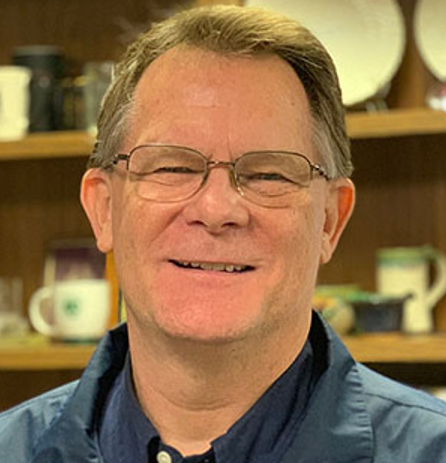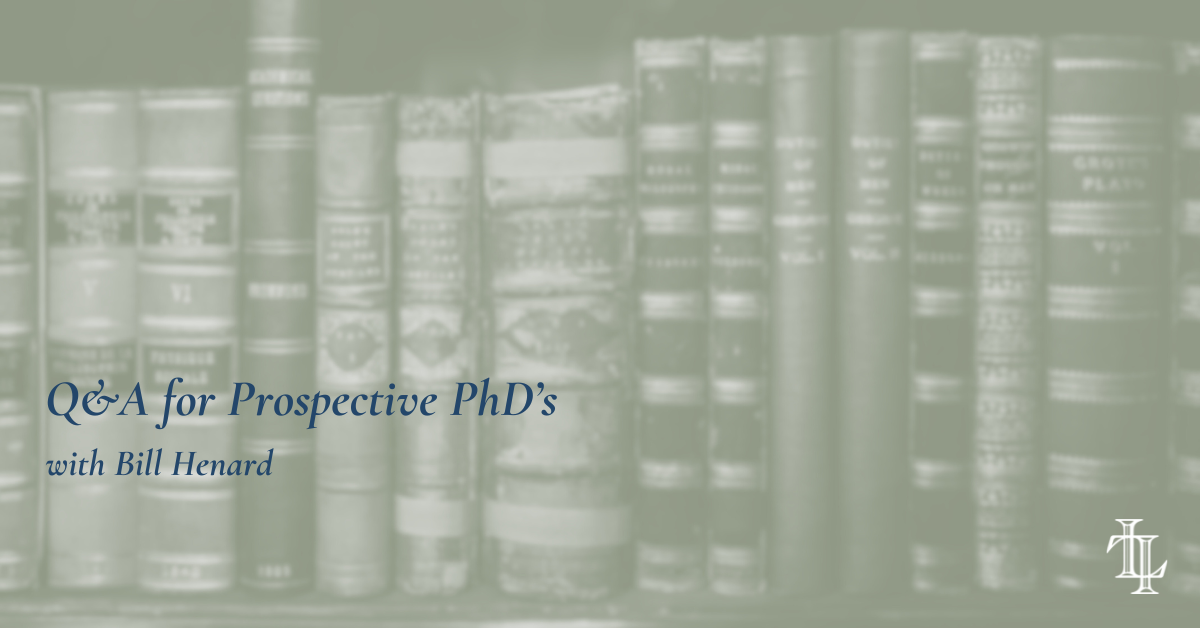Editor’s Note: For the next few weeks, the Ledger will feature articles from current professors in academia offering advice to prospective PhD students considering doctoral work. Each article will be followed by a critical book review on one of the books that the professor recommends that every PhD student should read. The LL team hopes this series will provide answers to common questions that aspiring PhD students have when considering taking the next step in their theological education.
How did you enter into ministry in the academy/desire to pursue a PhD?
I had always had a desire to pursue a PhD, but I chose the DMin instead due to family considerations. Unlike the opportunities available today with Cohorts and even online classes, the PhD I earned was a residential degree when I completed it. I still wanted to pursue a PhD and to teach, and I prayed for an opportunity to be close enough to begin my studies.
When I moved to Lexington, KY, to pastor Porter Memorial Baptist Church, I was close enough to do residential study. I had already developed a relationship with Dr. Thom Rainer, who invited me to apply. I served as Dr. Chuck Lawless’ Garrett Fellow and Teaching Assistant. When he became Dean, he recommended me for a faculty position upon the completion of my PhD.
How is educational ministry indeed a ministry that can serve the church?
A dearth in discipleship and biblical preaching exists in many churches. Pastors need more than programs and podcasts. They need strong theological training that equips them to serve and lead the church effectively. A church with a pastor/staff who have yet to complete their education benefits by encouraging and providing for their education. Ultimately, the pastor and staff become better trained to do the work the church has called them to do.
How did you develop your research interests?
I wrote my dissertation on Jonathan Edwards. My interest in him developed through an early seminar I took entitled “Great American Evangelists.” I had always had an interest in evangelism and the old phrase of church growth, and had studied those topics extensively throughout my seminary education. Upon being hired on the faculty, I was assigned classes that covered those subjects. As church revitalization began to take shape as an ecclesiological discipline, I was asked by the Dean to develop both MDiv and Dmin classes that taught on that subject. My lectures turned into my first book on Church Revitalization.
Tell us about your publications and current research.
I have written two books on church revitalization, Can These Bones Live? and ReClaimed Church. I edited a book entitled Evangelicals Engaging Emergent, which addresses the positive and negative theological and practical issues regarding contemporary theology. I have written chapters for various books, including Christian America?, A History of Evangelism in America, and Great Commission Resurgence. I wrote several articles for the Eerdmans publication entitled The Jonathan Edwards Encyclopdia. I also had an article published in the Great Commission Research Journal.
What advice do you have for beginning PhD students or students who desire to research and write well?
Do not cut corners in the papers you write. If your school expects you to follow specific formatting requirements, read that material and learn proper formatting. Read other papers written by students and professors. Take criticism well and learn from it. Not everyone is a good writer, so be willing to employ an editor. Learn from that editor.
What excites you about your field?
My primary areas of focus are church revitalization and preaching. Both are necessary disciplines for the local church. Church revitalization is an ever-developing subject. New books and ideas are being published regularly. Preaching, although the functional elements are in place, remains a continual challenge in trying to engage a public that is drawn to incredible graphics and has a short attention span. The beauty of preaching is that it leads to life change.
What is one book that you wish every PhD student in your field would read?
Church Revitalization: Reclaiming Glory by Mark Clifton
Preaching: On the Preparation and Delivery of Sermons by John Broadus
Author
-

Bill Henard currently serves as the Executive Pastor at the Westwood Baptist Church in Cleveland, TN, having recently completed a ministry assignment as the Interim Lead Mission Strategist for the CrossNet Baptist Network in Cleveland, serving there for just over a year. He continues to serve as Adjunct Professor of Evangelism and Church Revitalization at The Southern Baptist Theological Seminary in Louisville and as Adjunct Professor of Preaching at Bryan College in Dayton, TN. He retired from the pastorate of the First Baptist Church in Athens, TN, having moved there following his service as the Executive Director-Treasurer for the West Virginia Convention of Southern Baptists. Prior to his role in West Virginia, he served for 16 years as the Senior Pastor of the Porter Memorial Baptist Church in Lexington, KY, and on the faculty of Southern Seminary for 8 years as Assistant Professor of Evangelism and Church Growth.
Henard holds a PhD in Evangelism and Preaching from Southern as well as a DMin in Church Proclamation from Southwestern Seminary in Ft. Worth. He is the author of 2 books, ReClaimed Church and Can These Bones Live?, as well as the editor of Evangelicals Engaging Emergent. Additionally, he has contributed chapters to several other books, as well as writing several articles for the Eerdmans publication, A Jonathan Edwards Encyclopedia. He has been married to his college sweetheart for 49 years. They have 3 grown children and 7 grandchildren.
View all postsRecent Posts




